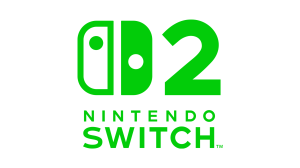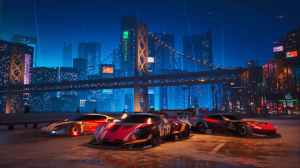Gladiator II arrives at a cursed time when the world is reeling from reality, which is perhaps exactly the moment that it should have been released. In the film, Rome is subject to tyrannical rule and though much of the population thirsts for the blood of the arena, others cling to the dream of what it was and what it could be. It’s an always topical framing for a narrative, and it’s the first of many ways where the new movie feels like it’s following the well-worn path of its predecessor with seldom an opportunity to attempt a new direction.
Videos by ComicBook.com
Paul Mescal leads Gladiator II as Lucius (the character played by Spencer Treat Clark in the original Gladiator), introduced under a different name and living a city that is quickly conquered by Rome’s army (lead by Pedro Pascal as Marcus Acacius, a role that ends up largely becoming thankless for him). The forked story of Gladiator II unspools from this moment in a few directions: Lucius comes to terms with his early life and parentage (a shoddy ret-con of the first movie is made here that Gladiator II is forced to bend over backward to make sense of) while also fighting in the arena for his desired revenge; Marcus and his wife Lucilla (Connie Nielsen, one of the few returning faces from the first film) who pine for a life free of war and tyranny; plus Denzel Washington’s Macrinus, the trader that purchases Lucius and brings him to the coliseum to suit his own interests. In large part, the plot is always easy to follow and never feels overly complicated (despite being dense); it’s a gift that filmmaker Ridley Scott has managed to hone across his decades-long career, so he’s suited for the task. But this leads to the biggest issue of Gladiator II on the whole: it’s more of the same.
It took over two decades for Gladiator II to arrive, but what is clear before the movie is even complete is that in that time, the best idea they could conceive of was a sequel that hits nearly all the same beats with minor tweaks. The entirety of the film reminded me of the cursed George Lucas mantra, “It’s like poetry, they rhyme,” which seldom offers the audience anything new to really chew on, instead simply existing on a cyclical repetition. Both films offer us a soldier sold to a gladiator-training merchant, tyrannical albeit eccentric leaders, and several other spoiler-laden similarities. Even the places where Gladiator II does manage to diverge, it finds its way back to the structure of the first film.
RELATED: Russell Crowe “Slightly Uncomfortable” With Gladiator 2
One of the few places where Gladiator II does outpace its predecessor is in the cutting and photography of its action moments. Though we may have fond memories of these moments from Gladiator, they’re one of the elements that has not stood the test of time. Gladiator II, by comparison, has precise, fast cutting within its action and clear camerawork to fully dictate the movement and emotion of each swing. It helps that the sequel has more sequences in the arena than its predecessor so it can quickly show off everything that has advanced since the first movie. That said, there are still instances where the action in the new movie fails to rise above modern conventions; a sequence where Paul Mescal does battle with a CG baboon, for instance, cannot be completed without the aid of visual effects, and it’s unable to rise to a level of realism and feels like watching an incomplete video game.
The biggest bright spot of Gladiator II, and the part that feels like a near-guaranteed Oscar nomination, is Denzel Washington. In true Poochie fashion, whenever Denzel is not on screen, the audience is wondering where Denzel’s character is and when they get to see him next. He attacks the movie on all fronts, injecting energy, levity, and gravitas into the moment depending on what is called for. By contrast, Paul Mescal, while charismatic in his performance, does mostly deliver a dour and one-note Lucius. This isn’t isolated and extends further into the Gladiator II cast as well.
Pedro Pascal, while good in his role, does not have much to do. Connie Nielsen’s return as Lucilla falls flat, walking in the same circles that she did 24 years before. The duo of Joseph Quinn and Fred Hechinger as Emperors Geta and Caracalla certainly bring a bit of dynamic energy any time they’re on screen, but the contrast of their characters compared to Joaquin Phoenix’s Commodus in the first movie is that they’re somehow more cartoonish versions of a similar mold. This is a symptom of the Gladiator II script overall, as almost all the characters are underwritten to a degree where the performances can only take them so far, and with all due respect to everyone else, it’s clear that only Denzel Washington was up to the task of elevating what was on the page.
Those with a fiendish love for the first Gladiator, which was at its best when opining on a philosophical level about identity and legacy, may find enjoyment in what Gladiator II has to offer. The fact that it brings the same meal back out to you again isn’t a dealbreaker for some, as the filmmaking itself remains dynamic, and Denzel is captivating every time he’s on screen. It’s why, despite feeling recycled, it’s difficult to not find some appreciation for what’s on screen. Hollywood studios don’t really make huge period pieces with massive sets anymore, so for that alone Gladiator II has my respect. Should the gods find favor in this tale and see fit to deliver us another, I just hope it picks a new trail to follow.
Gladiator II lands in theaters on November 22nd.









